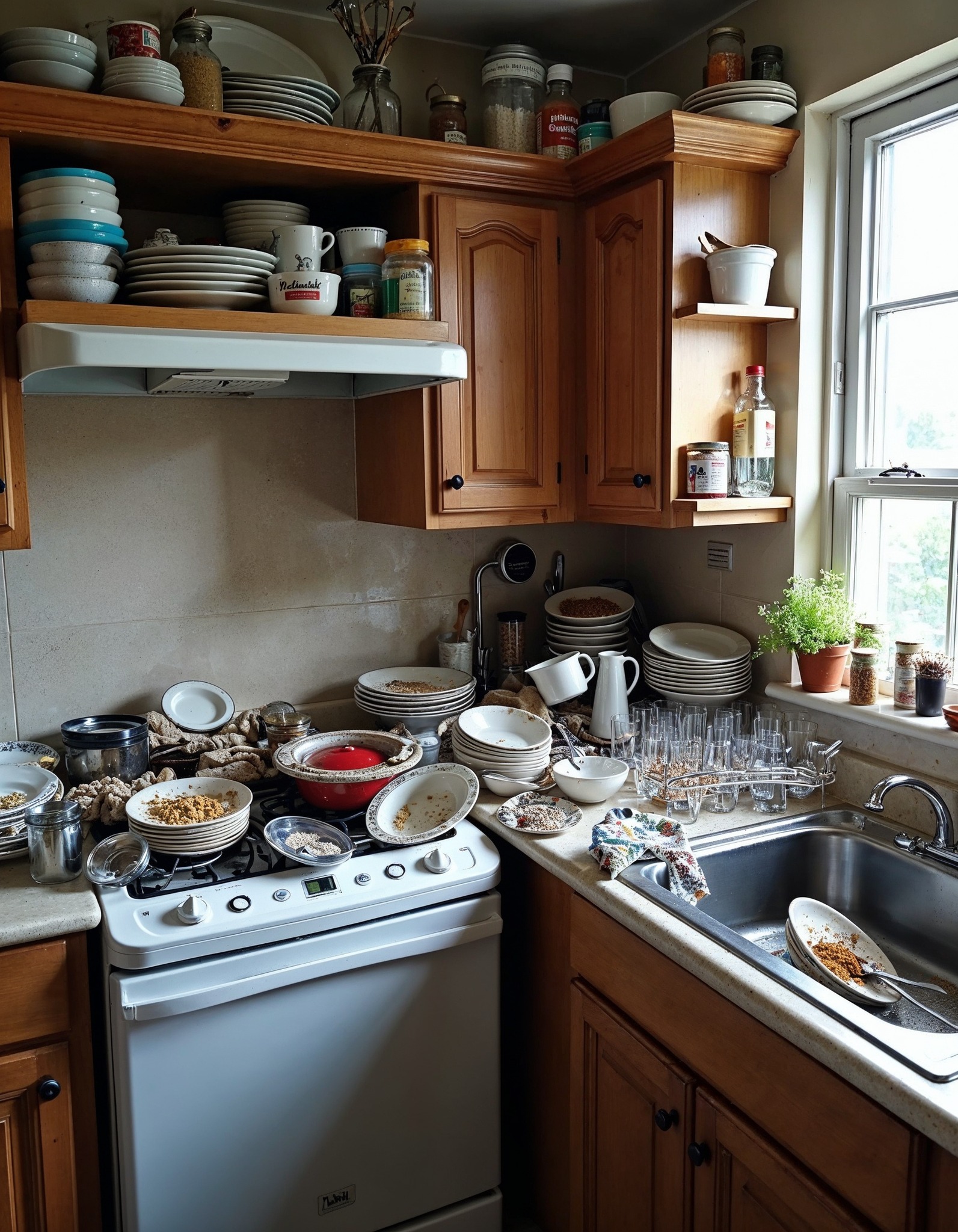ADVERTISEMENT
In today’s fast-paced world, it’s easy to feel overwhelmed by the clutter and chaos that can accumulate in our homes. Between busy schedules, work, family, and daily responsibilities, it can feel like there’s no time for tidying up, let alone organizing. Yet, the truth is that the state of our living spaces has a profound impact on our mental and emotional well-being. An organized home isn’t just about neatness—it’s about creating an environment that fosters peace, creativity, and positive energy.
In this article, we’ll explore the transformative power of an organized home, discuss the benefits of decluttering, and offer practical tips to help you create a space that nurtures positivity and productivity.
Why an Organized Home Matters
1. Reduced Stress and Anxiety
Clutter has been shown to contribute to feelings of stress and anxiety. When we’re surrounded by disorganized spaces, our brains have to work harder to process visual stimuli. This constant overload can lead to feelings of overwhelm and even a sense of paralysis—making it harder to focus, relax, or make decisions.
On the other hand, an organized home can help promote a sense of calm. When everything has its place, and you can easily find what you need, your mind feels more at ease. You’re no longer distracted by the clutter, and instead, you can focus on the things that matter most.
2. Increased Productivity and Focus
When your home is organized, it becomes a conducive environment for work, creativity, and relaxation. You’re able to dedicate more time to the things you love, whether it’s reading, cooking, or pursuing hobbies. An organized space eliminates the time you’d otherwise spend searching for misplaced items or dealing with distractions.
A tidy workspace, for example, can greatly enhance your productivity and focus. Whether you’re working from home, studying, or just tackling household tasks, a clutter-free environment allows you to think more clearly and accomplish more in less time.
3. Better Physical Health
The benefits of an organized home extend beyond mental well-being—it also positively impacts physical health. Clutter often accumulates in areas that require cleaning, such as countertops, floors, and storage spaces. A messy home can encourage the buildup of dust, allergens, and dirt, which can affect your respiratory health and contribute to allergies or asthma.
By regularly decluttering and organizing, you can create a cleaner, healthier living environment. You’ll also reduce the chances of accidents—such as tripping over piles of clothes or items left out of place—and create space for physical activities like yoga, exercise, or even family time.
4. Enhanced Creativity and Clarity
A disorganized environment can stifle creativity. When your space is cluttered, it can feel like your thoughts are just as chaotic. On the other hand, organizing and decluttering create physical and mental space, which allows room for creativity and clarity to flourish.
Whether you’re working on a personal project, making a new recipe, or brainstorming ideas, a clean and organized home encourages fresh thinking and boosts your ability to problem-solve.
Creating Space for Positivity: Practical Tips for Organizing Your Home
Now that we’ve explored the benefits of an organized home, let’s dive into some actionable steps you can take to declutter and create a positive, welcoming space.
1. Start Small: Tackle One Area at a Time
It’s easy to feel overwhelmed by the thought of decluttering an entire home. But organizing doesn’t have to be done all at once. Start small—choose one room, one closet, or even one drawer to focus on at a time. This allows you to make progress without feeling like the task is too big to tackle.
If you’re not sure where to start, begin with high-traffic areas where clutter is most noticeable—like the entryway or kitchen counters. Once you’ve made a dent in these areas, you’ll feel motivated to continue.
2. Purge Unnecessary Items
One of the biggest obstacles to an organized home is unnecessary stuff. Over time, we accumulate things we don’t need, use, or love. Begin by sorting through your belongings and identifying items that no longer serve you. Ask yourself:
- Do I use this regularly?
- Does it bring me joy?
- Is it in good condition?
If the answer is no, let it go. Consider donating, selling, or recycling items that are still in good condition, or properly dispose of those that are no longer functional.
3. Create Designated Spaces for Everything
The key to maintaining an organized home is creating designated spaces for your belongings. When everything has a place, it’s easier to keep things tidy and find what you need when you need it.
Use storage bins, baskets, and drawer organizers to group similar items together. Labeling storage containers can help everyone in the household know where things belong. In the kitchen, for example, group utensils, spices, and cleaning supplies into separate areas to keep things organized and accessible.
4. Practice the One-In, One-Out Rule
One of the best ways to keep your home organized in the long term is to implement the One-In, One-Out Rule. This means that for every new item you bring into your home, you should remove one item. It helps prevent clutter from building up over time and encourages mindful purchasing decisions. This simple rule can be applied to everything from clothes and kitchen gadgets to books and toys.
5. Develop Daily Habits for Maintenance
Once your home is organized, it’s important to establish daily habits to keep it that way. Spend a few minutes each day tidying up and putting things back in their designated spots. Here are some small tasks you can do each day to maintain order:
For Complete Cooking STEPS Please Head On Over To Next Page Or Open button (>) and don’t forget to SHARE with your Facebook friends
ADVERTISEMENT
